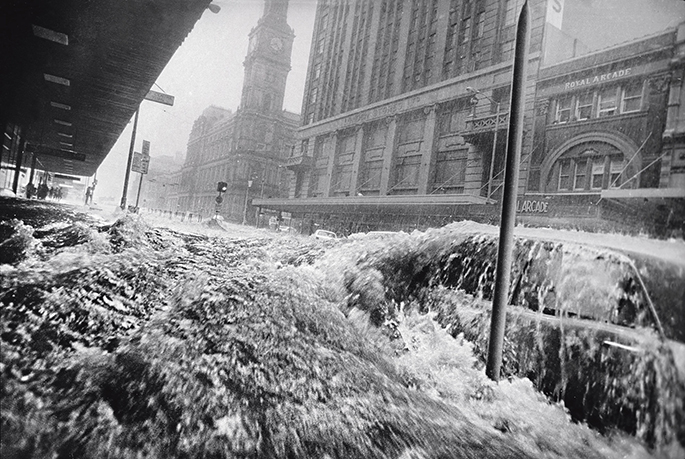Experiential, Adaptive Learning Tools for a Resilient Built Environment
Globally, the annual frequency of recorded disasters has increased fourfold since the 1960s. The effects of climate change, inappropriate use and management of natural and human made resources, have combined with increases in urban populations interacting with natural hazards.

Human activities, particularly in urban areas, play a critical role in worsening vulnerability to natural hazards, particularly related to human settlements. Cities and towns represent significant long-term human investments, and are increasingly the main site of catastrophic events. The concept of resilience is a key principle to act on these challenges.
This project aims to utilise the reflexive attributes of experiential learning as a key as a way of integrating resilience in the education built environmental professionals' as a highly adaptable professional skill that can be applied in a variety of other contexts over time. It uses group learning and the development of a living learning repository to build and improve knowledge and skill.
Invitation to participate in our survey on resilience in built environment professions
As part of this larger research project, we are conducting an anonymous online survey about resilience challenges in the built environment professions in Australia. For example, making decisions about future challenges such as climate change adaptation and bushfire risk.Participants are sought from all built environment disciplines across Australia, e.g. urban planning; architecture and design related disciplines; construction; civil engineering etc. The time commitment required to complete the survey will be approximately 15-20 minutes.
The research project has received ethics approval from The University of Melbourne's Human Research Ethics Committee. If you have any questions about the study, please contact Dr Anna Hurlimann.
Resources
- Risk and Resilience Workshop Programme
- Risk and Resilience Briefing Paper #1
- Risk and Resilience Briefing Paper #2
- Risk and Resilience Briefing Paper #3
- Risk and Resilience Briefing Paper #4
- Presentation given by Ayşın Dedekorkut-Howes, Griffith University, 'Urban planning for flood, sea-level rise and storm surge'
- Presentation given by Sheridan Blunt, Loci Environment and Place Inc.
Thanks to Joe Ravetz, Co-Director CURE (Collaboratory in Urban Resilience), Manchester Urban Institute, School of Environment Education & Development at the University of Manchester, for facilitating this workshop. This facilitation was made possible by the University of Melbourne-University of Manchester Research Fund 2016-17.
This project was funded by the University of Melbourne's Learning and Teaching Initiatives Fund and is a collaboration between the Faculty of Science and the Melbourne School of Design.
Project details
Major Sponsor
University of Melbourne - Learning and Teaching Initiatives Fund
Project Team and Contacts
Alan March (Melbourne School of Design)
Ruth Beilin (Faculty of Science)
Anna Hurlimann (Melbourne School of Design)